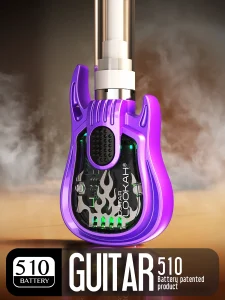Ensuring Kitchen Safety with Exhaust Hood Cleaning Service
Understanding the Need for Exhaust Hood Cleaning Service
What is Exhaust Hood Cleaning Service?
The Exhaust Hood Cleaning service is a specialized cleaning regimen designed to maintain the efficiency and safety of kitchen exhaust systems. These systems, critical in commercial kitchens, are responsible for removing smoke, grease, heat, and fumes produced during cooking. A proper cleaning service involves degreasing and removing accumulated contaminants from the hood, ducts, and fans to ensure optimal performance and compliance with health and safety regulations.
Common Issues from Neglecting Cleaning
Failing to perform routine exhaust hood cleaning can lead to serious problems. The most immediate concerns include:
- Fire Hazards: Grease buildup is highly flammable and can ignite, posing a substantial fire risk.
- Poor Air Quality: Accumulated fumes can adversely affect the air quality in the kitchen, creating an unpleasant working environment.
- Equipment Damage: Over time, clogged systems may lead to mechanical failures, increasing the risk of downtime and costly repairs.
- Health Code Violations: Compliance with local regulations is vital; neglecting maintenance can lead to penalties or closures.
Key Benefits of Regular Maintenance
Engaging in regular exhaust hood cleaning brings numerous advantages:
- Enhanced Safety: Regular maintenance significantly decreases the fire risks associated with grease accumulation.
- Improved Efficiency: A clean system operates more efficiently, reducing energy costs over time.
- Better Air Quality: Regular cleaning can help maintain fresher and healthier air for kitchen staff and patrons.
- Protection Against Equipment Deterioration: Preventative care can extend the lifespan of kitchen equipment, saving money on replacements.
Identifying Signs of Unclean Exhaust Hoods
Visual Indicators of Neglect
Spotting signs that indicate your exhaust hood requires cleaning is crucial. Some visual indicators include:
- Grease Stains: Noticeable grease buildup around and under the exhaust hood and filters.
- Darkening Ducts: If the ducts appear darker than usual, it’s a sign of grease accumulation.
- Damaged Filters: Filters that show visible grease and dirt need immediate attention.
Odor and Air Quality Concerns
A kitchen that smells of burnt food or grease often signals inadequate maintenance. Poor air quality can lead to health issues, making it essential to address these smells promptly. Persistent foul odors can indicate that the exhaust system is not effectively clearing out contaminants.
Fire Risks Associated with Dirty Hoods
Grease fires are a significant risk in kitchens with unclean exhaust systems. The National Fire Protection Association identifies that commercial kitchens encounter a high frequency of fires due to grease buildup. Regular cleaning is not just a good practice; it is a necessity to mitigate this grave danger.
Best Practices for Exhaust Hood Cleaning Service
Recommended Cleaning Schedules
Establishing a cleaning schedule based on kitchen usage patterns is vital. High-volume kitchens should consider deep cleaning quarterly, while less frequent operations may manage with bi-annual cleanings. Important points to consider include:
- Type of Cooking: Frying produces more grease and requires more frequent cleaning.
- Volume of Business: Busier kitchens will necessitate more regular upkeep.
- Local Regulations: Compliance with local fire codes should dictate minimum cleaning frequency.
DIY vs. Professional Services
While some minor maintenance tasks can be undertaken by restaurant staff, professional cleaning services are experts in thorough cleaning and compliance. The advantages of hiring professionals include:
- Expertise: Professionals have the necessary training and equipment to conduct a deep clean effectively.
- Time-Saving: Employing a service allows staff to focus on kitchen operations.
- Regulatory Compliance: Professionals ensure compliance with health and safety regulations.
Choosing the Right Cleaning Products
When engaging in or overseeing cleaning, selecting appropriate products is crucial. Recommended products include:
- Food-Safe Degreasers: Safe for kitchen environments with effective grease-cutting abilities.
- Biodegradable Cleaners: Environmentally friendly options promote sustainability.
- Non-Corrosive Agents: Essential for maintaining the integrity of equipment while cleaning.
How to Choose an Exhaust Hood Cleaning Service Provider
Key Qualifications to Look For
When selecting a service provider, consider the following qualifications:
- Certification: Look for credible certifications ensuring they meet industry standards.
- Experience: Providers should have a proven track record in the industry.
- Insurance: Proper insurance protects you against potential damages during the cleaning.
Understanding Service Packages and Pricing
Service providers often have varying packages. Understanding the specifics of what each package includes is vital. Common elements to compare include:
- Extent of Cleaning: Ensure the package covers all components, including hoods, ducts, and fans.
- Frequency of Service: Some providers may offer discounts for routine service agreements.
- Documentation: Service completed should be documented for compliance purposes.
Reading Reviews and Customer Feedback
Look for customer testimonials and reviews online. Reliable feedback can provide insight into the service quality, professionalism, and overall customer satisfaction. Websites like Yelp and Google reviews can facilitate a deeper understanding of the provider’s reputation.
Long-term Benefits of Regular Exhaust Hood Cleaning Service
Enhancing Kitchen Efficiency
With a clean exhaust system, the kitchen operates more effectively. Improved air circulation and reduced grease buildup contribute to a more efficient cooking environment, leading to faster service and potentially higher customer satisfaction.
Compliance with Health Codes
Maintaining a compliant exhaust system is crucial for avoiding fines and ensuring safe operations. Regular cleaning assists businesses in staying abreast of local health and safety regulations, facilitating hassle-free inspections.
Extending Equipment Lifespan
Investing in regular cleaning prolongs the lifespan of kitchen equipment substantially. By maintaining cleanliness, the risk of mechanical failures is diminished, ultimately preserving the functionality of key systems.













Post Comment